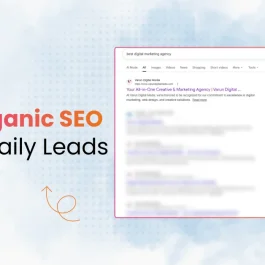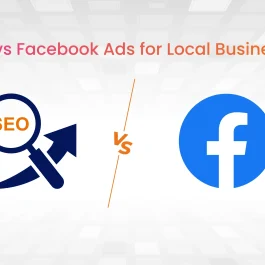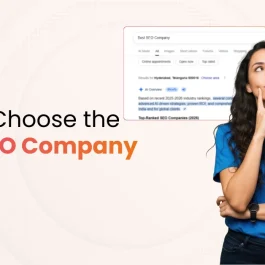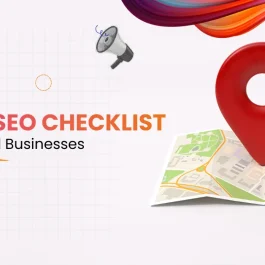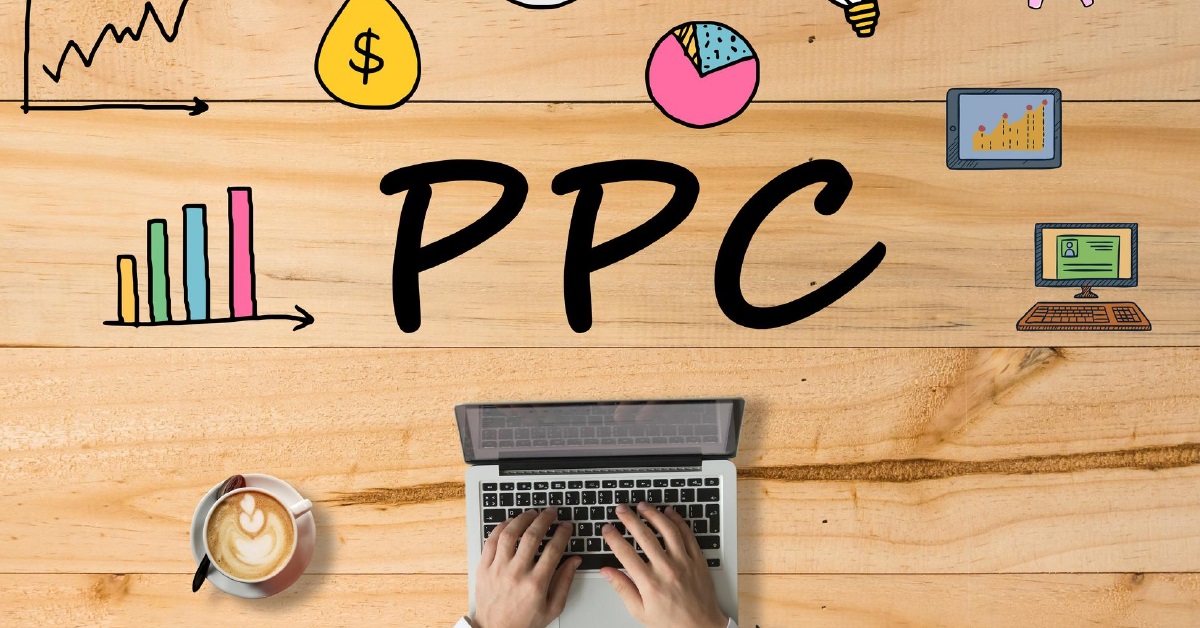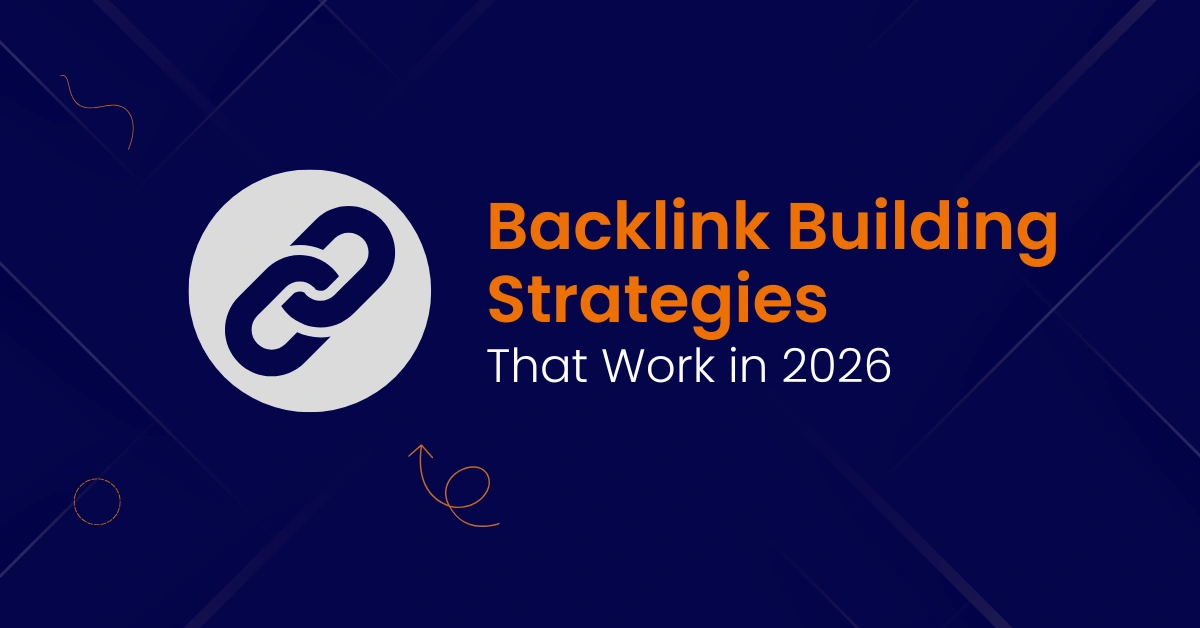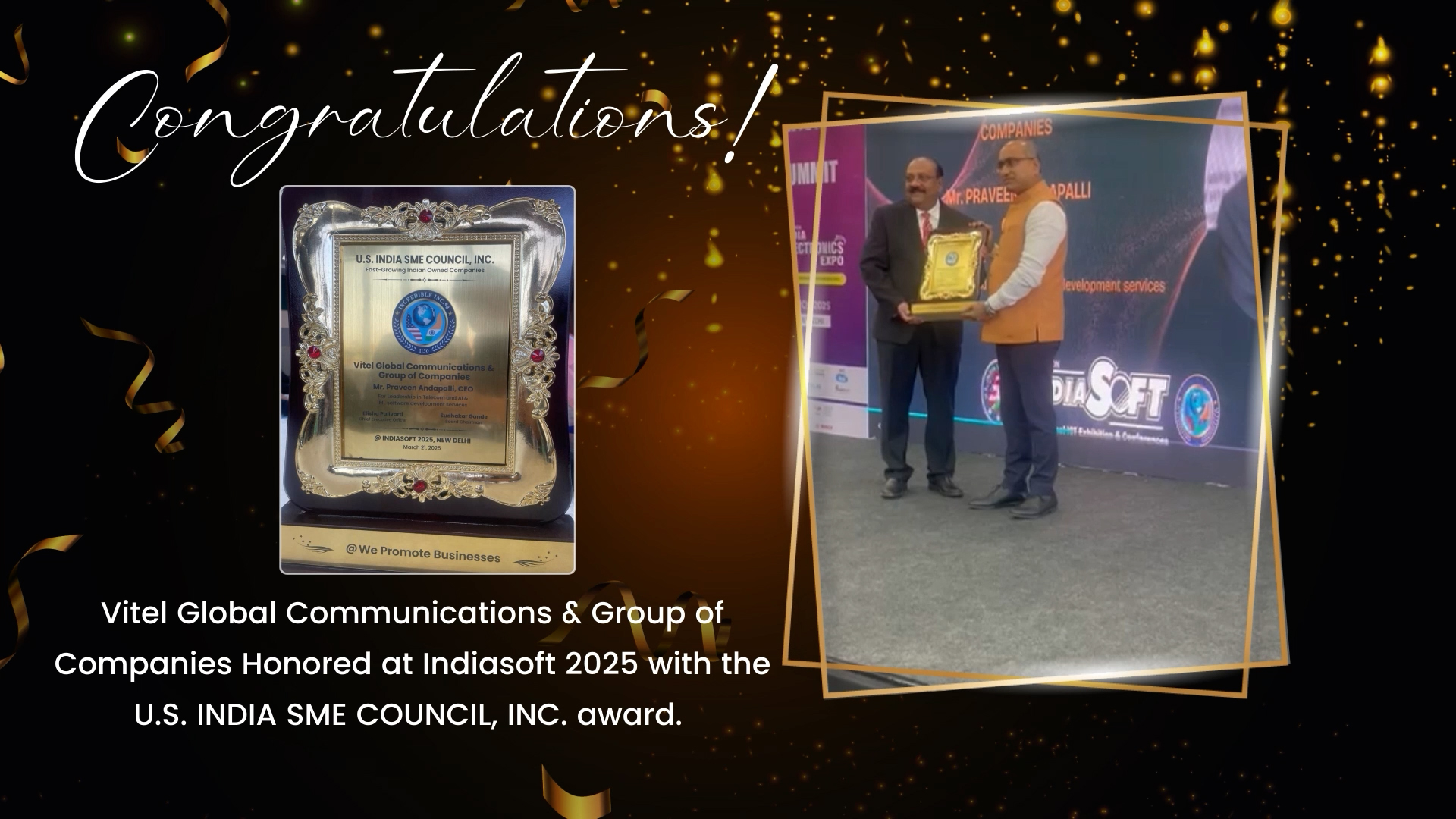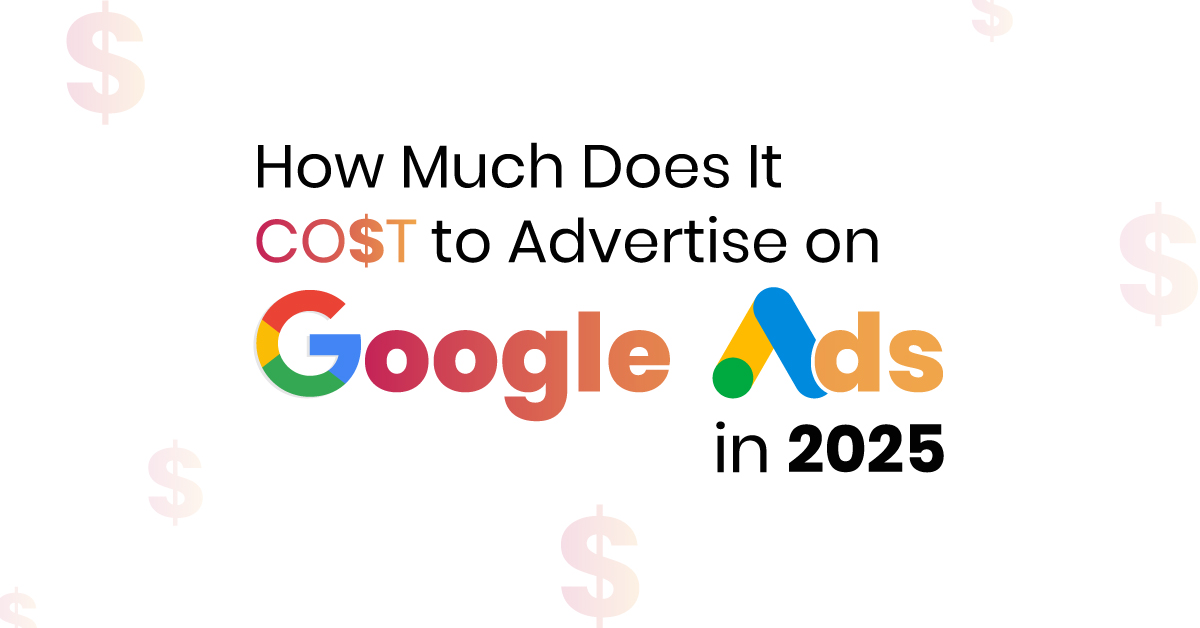11 min read
PPC, or pay-per-click, is a digital advertising model where advertisers pay each time their ad is clicked. It’s a way to buy visits to your site instead of earning them organically. This model is effective for driving traffic and generating leads when used correctly. In this article, you will learn the basics of PPC, its key components, and strategies to optimize your campaigns — and discover why partnering with a professional agency like Varun Digital Media is the smartest choice for maximizing your ROI.
Table of Contents
Why Choose Varun Digital Media Over Freelancers?
While freelancers may seem like a cost-effective option, relying on a single individual for your digital marketing needs often comes with significant drawbacks. Freelancers typically have limited expertise, focusing on one or two specialties rather than offering a comprehensive approach. This can lead to inconsistent results and a lack of accountability, as there is no structured team or proven process to ensure your campaigns succeed. Moreover, dependency on one person creates risk — if they become unavailable, your marketing efforts stall.
In contrast, Varun Digital Media offers the reliability and scalability that freelancers cannot match. Our agency brings together a dedicated team of experts across SEO, PPC, social media, and web development, ensuring every aspect of your online presence is optimized and aligned with your business goals. We utilize advanced tools and proven processes to deliver consistent, measurable results, backed by full accountability and transparent reporting.
Choosing Varun Digital Media means partnering with professionals committed to your long-term growth. Our collaborative approach adapts to your evolving needs, providing scalable solutions that grow with your business. Don’t settle for unpredictable outcomes — trust Varun Digital Media to elevate your digital marketing.
Ready to experience the difference? Contact Varun Digital Media today to boost your PPC campaigns and drive sustainable growth.
Key Takeaways
- PPC advertising operates on a model where advertisers pay for clicks, ensuring payment corresponds to actual engagement, which enhances visibility and return on investment.
- The effectiveness of a PPC campaign relies on critical components such as keyword research, crafting effective ad groups, and optimizing landing pages to drive conversions.
- Utilizing advanced strategies like remarketing, A/B testing, and automated bidding can significantly enhance PPC campaign performance and effectiveness across various platforms.
- Partnering with Varun Digital Media provides access to a full team of specialists, proven strategies, and cutting-edge tools, delivering superior results compared to freelancers.
Understanding PPC Advertising
Pay-Per-Click (PPC) advertising is a digital advertising model. In this model, advertisers incur a fee for each click on their ad. Unlike traditional advertising, where you pay for a slot regardless of performance, pay per click advertising ensures you only pay for actual engagement. This makes it a highly effective model for driving traffic to your website when executed properly, as each click brings a potential customer directly to your landing page. Advertisers pay for this model, ensuring they are only paying for genuine interest. Cost-per-click (CPC) is calculated by dividing the advertising cost by the number of clicks generated by an advertisement. Google Ads allows advertisers to display their ads at the top of the search results, providing prime visibility for their campaigns.
The beauty of PPC advertising lies in its ability to generate targeted traffic. This model allows businesses to boost their online advertising visibility, connecting with their target audience more efficiently and cost-effectively.
Whether you’re using Google Ads, Bing Ads, or other platforms, PPC offers a direct route to connect with potential customers actively searching for what you offer. This precision targeting not only enhances your marketing efforts but also ensures a higher return on investment.
Don’t risk your marketing success with freelancers—partner with Varun Digital Media for expert PPC management that delivers consistent, scalable results. Reach out now for a free consultation.
How PPC Works
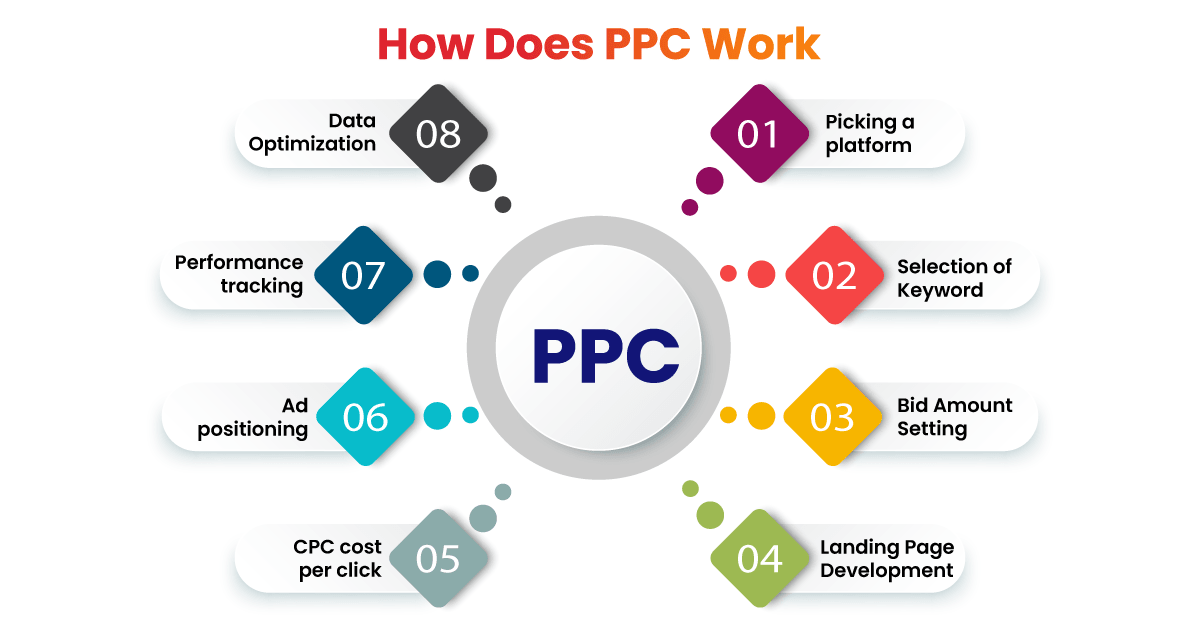
At the heart of PPC advertising is the bidding process for ad placement in search engine sponsored links. When a user enters a search query, advertisers bid on specific keywords relevant to their products or services. These bids determine when and where your ads will appear in the search results, making keyword selection a critical component of your PPC strategy.
The placement of your ads is determined through an auction system that evaluates both the bid amount and the ad’s relevance. This means that simply bidding the highest amount doesn’t guarantee the top spot; the quality and relevance of your ad also play a significant role. Search engines like Google use a combination of bid amount and quality score to decide the ad placement, ensuring a fair and competitive environment for advertisers, which can also influence organic search results. Quality Score in PPC ads influences the cost and placement of ads. Quality Score is assigned as a number between 1 to 10 for every keyword, reflecting its relevance and expected performance.
Understanding the intricacies of this auction system is crucial for optimizing your PPC campaigns. By focusing on both competitive bidding and creating high-quality, relevant ads, you can improve your ad’s visibility and position in search results, ultimately driving more qualified traffic to your site.
Key Components of a Successful PPC Campaign
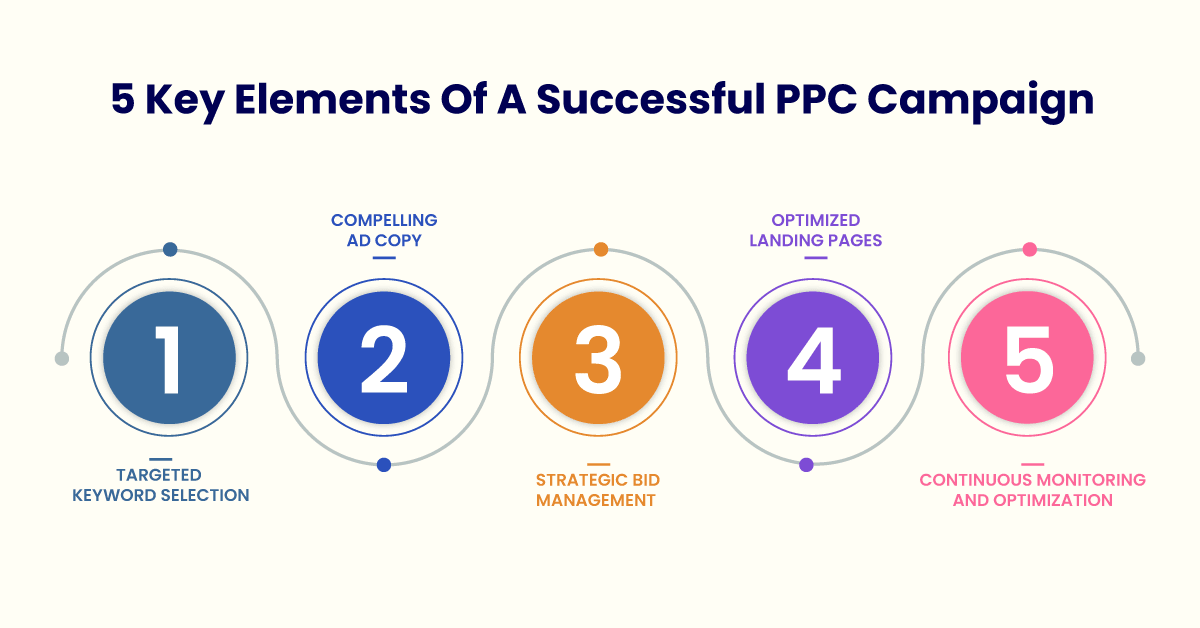
Creating a successful PPC campaign involves several key components:
- Keyword research: allows you to target the right audience, improving ad relevance and click-through rates.
- Crafting effective ad groups.
- Optimizing landing pages.
Each of these elements plays a vital role in enhancing the performance and ROI of your campaigns.
Organizing your ads into thematic ad groups enhances their relevance and performance. Additionally, optimizing your landing pages ensures that the traffic driven by your ads converts into leads or sales.
Let’s delve deeper into each of these components to understand how they contribute to a successful PPC campaign.
1. Keyword Research
Keyword research is the cornerstone of any successful PPC campaign. It involves:
- Identifying the right keywords that your target audience is using to search for products or services similar to yours.
- Utilizing tools like Google Ads Keyword Planner and SEMrush to discover high-value keywords.
- Analyzing the competition to ensure you target the most relevant terms.
Advertisers should continuously grow and refine their PPC keyword list for successful campaigns, as this ensures they stay competitive and adapt to changing market trends.
- Identifying the right keywords that your target audience is using to search for products or services similar to yours.
- Utilizing tools like Google Ads Keyword Planner and SEMrush to discover high-value keywords.
- Analyzing the competition to ensure you target the most relevant terms.
Understanding your audience’s search intent is crucial for selecting the right keywords. Continuously adjusting your keyword strategies based on performance data can significantly enhance your campaign’s effectiveness.
Remember, keyword research is not a one-time task; it’s an ongoing process that requires regular updates to capture emerging trends and opportunities.
Varun Digital Media’s expert team leverages advanced keyword research tools and market insights to pinpoint the most relevant keywords for your business. Partner with us to gain a competitive edge.
2. Crafting Effective Ad Groups
Organizing your ads into themed ad groups is essential for enhancing relevance and improving overall campaign performance. Each ad group should focus on a specific theme or set of keywords, which helps in creating more targeted and effective ads. This organization not only enhances ad relevance but also streamlines budget allocation and performance tracking.
Grouping similar ads and keywords together allows more efficient campaign management and ensures each ad is highly relevant to targeted search queries. This increases the likelihood of ad clicks and conversions, ultimately improving your campaign’s ROI.
3. Optimizing Landing Pages
Landing pages play a crucial role in converting visitors into customers. They should be directly tied to the ad content and user intent to maintain interest and drive conversions. Effective landing pages focus on providing clear and relevant content, compelling users to take the desired action.
Creating tailored landing pages rather than directing all traffic to your homepage improves user experience and boosts conversion rates on websites, positively impacting your quality scores and campaign success. This strategy has been created to enhance overall performance on the search engine results page.
Additionally, incorporating negative keywords helps prevent your ads from appearing in irrelevant searches, optimizing budget efficiency.
Setting Up Your First PPC Campaign
Setting up your first PPC campaign begins with defining clear objectives that will guide your campaign’s direction. Whether your goal is to increase website traffic, generate leads, or boost sales, having well-defined objectives helps in shaping your strategy and measuring success.
Establishing a budget is another crucial step, as PPC costs can vary based on the industry and chosen platform. Selecting the appropriate campaign type and advertising channel is also vital, as different platforms cater to distinct audience demographics.
Audience segmentation further enhances targeting precision, allowing for tailored messaging that resonates with specific groups. Finally, setting up tracking mechanisms is necessary to monitor your campaign’s performance and effectiveness continuously. By keeping a close eye on key metrics, you can make informed adjustments to optimize your campaign and achieve your objectives.
Maximize your PPC success with Varun Digital Media’s expert campaign setup and management. Contact us today to get started.
Managing and Monitoring PPC Campaigns
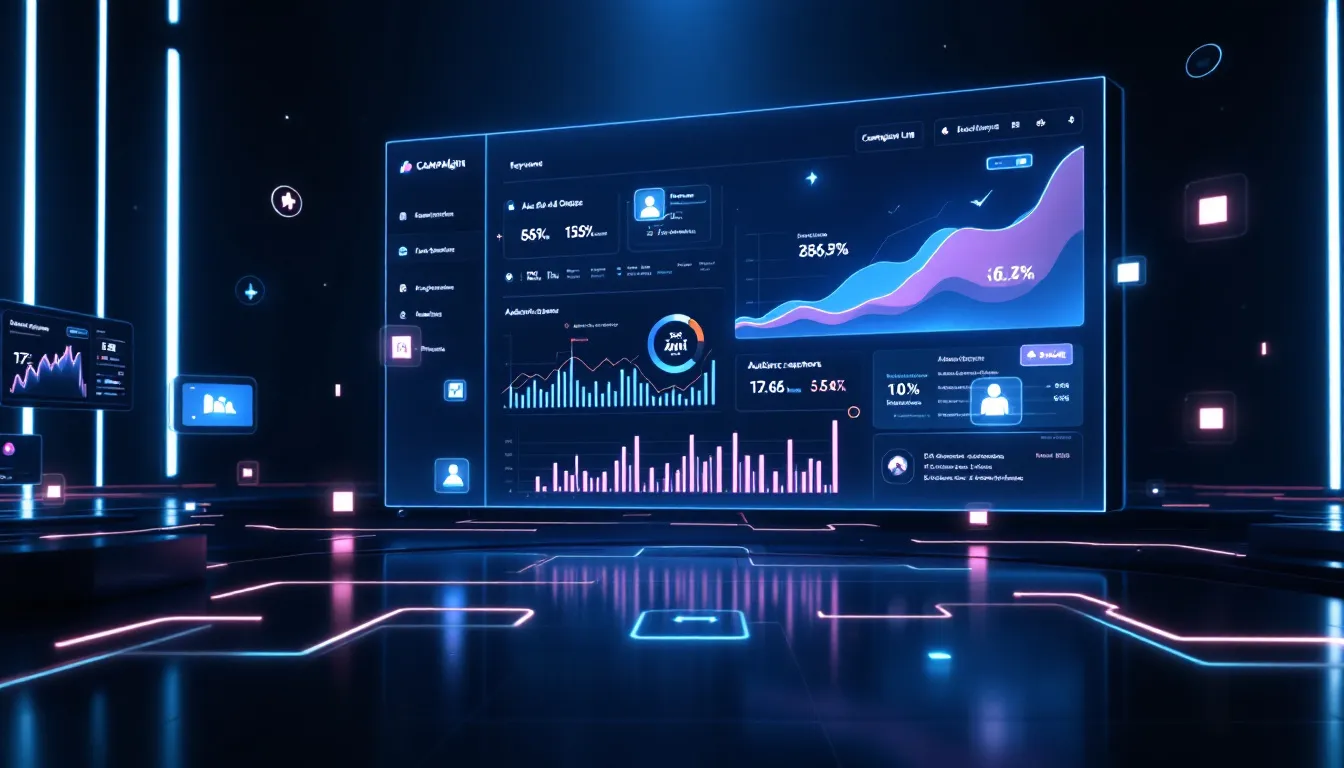
Effective PPC management requires ongoing optimization to maintain relevance and reduce costs. This involves strategies like adding negative keywords to prevent your ads from showing up in irrelevant searches. Neglecting to actively manage and improve your campaigns can lead to stagnation and wasted resources. PPC campaigns provide transparent, real-time data on everything from impressions and clicks to conversions, enabling advertisers to make informed decisions and optimize their strategies effectively. A common concern amongst advertisers is the practice known as ‘click fraud,’ where invalid clicks can inflate costs without delivering genuine engagement.
Regular analysis of performance metrics is essential for managing budgets effectively and optimizing ad effectiveness. By monitoring your campaigns frequently, you can identify areas needing adjustment and boost overall performance.
1. Analyzing Performance Metrics
Key performance metrics like click-through rate (CTR) and cost per click (CPC) are crucial for understanding how well your ads are engaging potential customers. A high CTR indicates that your ad is relevant and compelling to users, while a low CPC helps maximize your advertising budget.
Focusing on these metrics allows you to optimize your PPC campaigns for better engagement and cost efficiency. Tracking these performance indicators regularly ensures you can make data-driven adjustments to enhance your overall campaign effectiveness.
2. Making Data-Driven Adjustments
Using performance data to guide your adjustments is crucial for improving PPC campaign effectiveness. By analyzing which keywords and ads yield the best results, you can refine your strategy to better align with audience needs.
Testing different approaches within ad groups allows you to see what resonates best with your target audience. This iterative process of continuous improvement ensures that your PPC campaigns remain effective and relevant over time.
Varun Digital Media’s dedicated analysts continuously monitor and optimize your campaigns, ensuring every dollar spent drives maximum value. Partner with us for expert PPC management.
Advanced PPC Strategies
Advanced PPC strategies like remarketing, A/B testing, and automated bidding can significantly enhance your campaign performance. Remarketing allows you to target users who have previously interacted with your site, increasing the likelihood of conversion. A/B testing different ad variations provides valuable data on what resonates best with your audience.
Automated bidding optimizes your bids in real-time based on the likelihood of conversion, maximizing your return on investment. These advanced strategies, when implemented effectively, can transform your PPC campaigns from good to great.
1. Remarketing
Remarketing targets users who have previously engaged with your brand, offering tailored ads to encourage conversions from those who did not initially purchase. This strategy helps reconnect with visitors who showed interest but didn’t complete a purchase, increasing the likelihood of conversion.
Displaying tailored ads based on prior interactions keeps your ads relevant and compelling to potential customers. This targeted approach boosts conversion rates and enhances overall campaign performance.
2. A/B Testing
A/B testing involves comparing different versions of ads or landing pages to see which performs better. This method provides valuable insights into what layout, messaging, or content converts visitors most effectively.
Continuously testing and optimizing different campaign elements improves overall performance and ensures your ads resonate with your target audience. This iterative process supports data-driven decisions, enhancing campaign effectiveness.
3. Automated Bidding
Automated bidding techniques adapt bids in real-time based on the likelihood of conversion, aiming to maximize return on investment. This bid based method utilizes machine learning to optimize bids and improve ad performance.
Enhanced cost-per-click bidding allows brands to adjust their bids based on conversion likelihood and user behavior, ensuring cost effective budget management while achieving the best possible low cost results.
PPC on Different Platfoms
PPC advertising is not limited to search engines; it spans across various platforms such as:
- YouTube
- Bing
- Instagram Each platform offers unique features and targeting options, making it essential to choose the right one for your PPC ads campaign goals.
The top platforms for PPC advertising include Google, Microsoft Bing, and Facebook. Each platform has distinct advantages, and understanding these can help you leverage the right channels to reach your target audience effectively.
1. Google Ads
Google Ads is a significant platform for PPC advertising, offering robust tools for keyword planning and ad creation. Enhanced cost-per-click bidding and other advanced features help optimize bids and improve ROI. Additionally, Google AdWords provides valuable insights for advertisers using a google ads account. Google Ads makes it easy to monitor your results and track your return on investment (ROI). To set up a Google Ads campaign, you need to create an account, identify target search terms, create your ad, and set a budget, ensuring a structured approach to achieving your advertising goals.
Effective ads in Google Ads involve crafting compelling messaging and selecting appropriate bids. Using these tools enables the creation of highly targeted ad campaigns that drive traffic and conversions.
2. Bing Ads
Bing captures over 10% of the global desktop search market, making it a notable contender in PPC advertising. With a wealthier user base compared to some other search engines, advertising on Bing can attract more affluent consumers. This makes it an excellent platform for businesses targeting a higher-income demographic.
Bing Ads offers a variety of ad formats including:
- Search ads
- Product ads
- Shopping ads
- Display ads
- Video ads
Advertisers can purchase ads on a pay-per-click or cost per impression basis, allowing advertisers to pay flexibility in how they manage their campaigns. Understanding Bing’s unique user base and leveraging its ad formats can help you achieve better targeting and improved campaign results. The advertiser pays for the clicks or impressions generated.
3. Social Media Platforms
Social media platforms like Facebook and Instagram provide robust targeting options that allow advertisers to reach specific audiences effectively. Facebook ads can target users based on demographics, interests, and locations, ensuring that your ads are seen by the most relevant audience.
Instagram ads, displayed as sponsored posts within users’ newsfeeds, utilize similar targeting options as Facebook. Facebook’s advertising algorithm optimally shows ads to users who are likely to be interested in the promoted content, enhancing engagement and reach.
Leveraging these targeting capabilities can significantly boost the effectiveness of your PPC campaigns on social media platforms.
Varun Digital Media’s full-service agency expertise covers all these platforms and more. Let us craft a multi-channel PPC strategy tailored to your business. Contact us today!
Common PPC Mistakes to Avoid
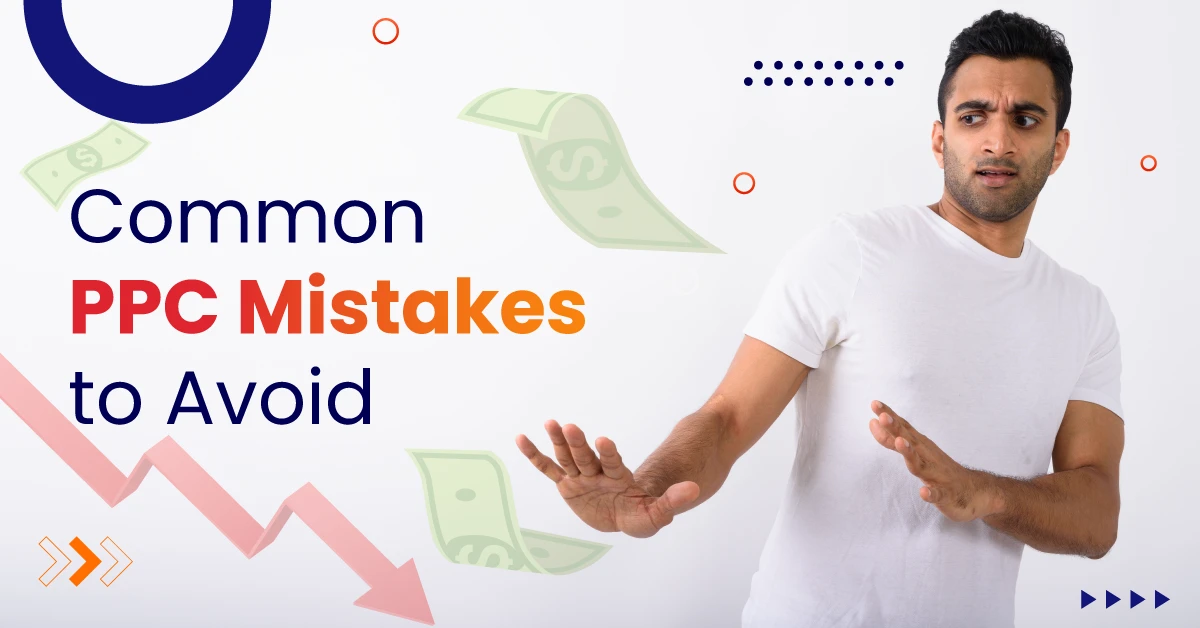
One of the most common mistakes in PPC campaigns is failing to establish conversion points, which hinders the ability to measure success effectively. Another frequent issue is spreading the marketing budget too thin across numerous channels, preventing meaningful results from any single channel.
Running campaigns continuously without optimizing for peak times can lead to inefficiencies in ad performance. Additionally, solely relying on auto-bidding can limit control over costs and result in suboptimal click rates. To improve results, it is essential to create campaigns that are tailored to peak times.
Targeting too broad or too niche audiences can also lead to overspending or minimal engagement. Continuously promoting the same content without refreshing it can diminish audience interest over time. Avoiding these pitfalls is crucial for ensuring the long-term success of your PPC advertising efforts.
Summary
Mastering PPC advertising involves understanding its fundamental mechanics, setting up well-structured campaigns, and continuously optimizing performance. By focusing on key components such as keyword research, crafting effective ad groups, and optimizing landing pages, you can significantly enhance your campaign’s success.
Advanced strategies like remarketing, A/B testing, and automated bidding can further improve performance and ROI. Avoiding common mistakes and leveraging the unique features of different PPC platforms will ensure you achieve the best possible results. Armed with these insights, you are now ready to take your PPC campaigns to the next level and achieve your business goals.
Want ROI-driven PPC campaigns? Book your free consultation with
Varun Digital Media now.
Frequently Asked Questions
1. What is PPC advertising?
PPC advertising is a model where advertisers pay each time a user clicks on their ad, effectively directing targeted traffic to their websites. This approach allows businesses to gain visibility and potentially increase their conversion rates through strategic ad placement.
2. How does the PPC bidding process work?
The PPC bidding process involves advertisers submitting bids for ad placements on search engines based on selected keywords, with the final placement determined by both the bid amount and the relevance of the ad. This auction system ensures that the most relevant ads are displayed to users.
3. What are the key components of a successful PPC campaign?
The key components of a successful PPC campaign include effective keyword research, the creation of thematic ad groups, and optimization of landing pages to enhance relevance and conversion rates. Ensuring these elements are well-executed will significantly improve your campaign’s performance.
4. How can I optimize my PPC campaigns?
To optimize your PPC campaigns, regularly analyze performance metrics such as CTR and CPC, and make data-driven adjustments while testing different ad variations for improved engagement and cost efficiency. This structured approach will lead to better overall results.
5. What are some common PPC mistakes to avoid?
To achieve optimal results in PPC campaigns, avoid common mistakes such as failing to establish clear conversion points, spreading your budget too thin across multiple channels, not optimizing for key times, relying solely on auto-bidding, and targeting audiences that are either too broad or too niche. Addressing these issues will enhance your campaign’s effectiveness.
Published: September 23rd, 2025



